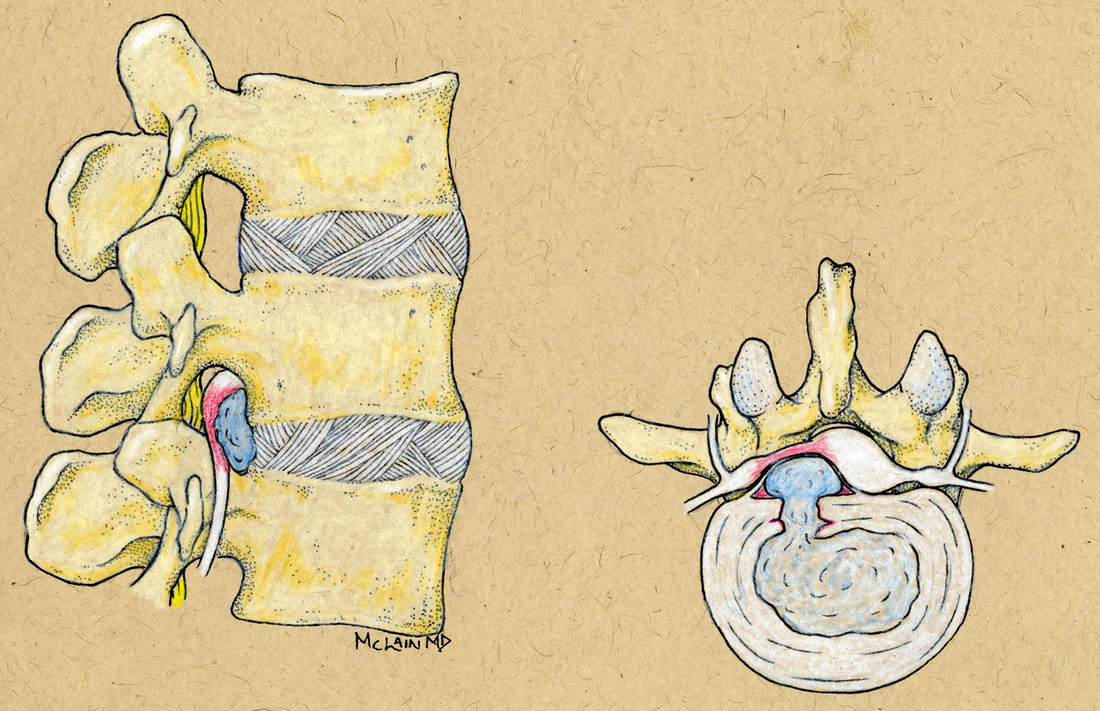Any good medical exam starts with a careful history. That means answering some important questions, so be prepared!Back and neck pain are common problems that most all of us will experience at one time or another. However, the cause of each person’s pain and the way it affects their life and function can differ significantly. One of the most common causes of failed spine surgery and failed back care is failure to make the correct diagnosis up front, and the subsequent failure to provide the best treatment thereafter – doing a surgical procedure that wasn’t helpful or failing to operate when someone really did need it. One of our most important tools in medical diagnosis – of any kind – is called the “History”. Without a good history, we tend to make assumptions, and if they are the wrong assumptions then we can start down the wrong path when it comes to treatment. That can lead to delays in recovery, unnecessary procedures, or a poor outcome all together. No one wants that! So, your doctor will want a full and accurate history to help them understand what your particular problem is and how it affects you, so they can provide you the very best and most specific care. Here are Six Questions you should be able to answer for your Back Doctor when you come to talk about back and neck pain or back and neck surgery: 1. What can I do for you today? “Just fix me” sounds cute, but it’s not a helpful answer. Tell me what brings you in today – “I’ve had back pain for years, but for the last 3 – 6 months I’ve been getting terrible leg pain and it worries me” or “ I’ve been diagnosed with a neck strain, but it’s not getting better and my doctor thinks I need to see a specialist”. It’s OK to say “I’m not interested in surgery, I just want to make sure it’s not something serious!”. 2. Where does it hurt? – Sounds simple enough, but every day I meet patients who said “neck pain” on their intake form yet immediately describe burning pain running down their arm to their hand as their real problem. This is important information and it’s important to be thoughtful and specific in your description. And, if the answer changes with activity or time of day that’s important too. “When I first get up my pain is right in the middle of my back – low down, but after I’ve been up and standing, it starts to run down the back of my legs to my feet and toes. Is that weird?” No – it’s important information. 3. How bad is your pain? This is always a hard question to answer, because we each experience pain in different ways at different times. The best way to measure pain is sometimes in terms of what it prevents us from doing. If the pain is severe enough that it’s interfering with your ability to sleep, exercise, and/or work, that’s important. If non-operative treatments don’t get you significant relief, surgery might be a serious consideration. If it’s keeping you from enjoying more than three or four rounds of golf each week, that’s important too, but it suggests you’re functioning pretty well, and a sports/rehab approach might be right for you! 4. How long have you been having pain? It’s important to be clear – I recently had a long conversation with a patient who reported that her pain had started “about three weeks ago”. After looking through the patient’s records I asked why they had had previous x-rays and MRI studies. “Oh, I’ve had back pain for years. But this time it’s been going on for three weeks”. It’s okay to be a little more detailed – “I’ve had back pain for years, but the leg pain didn’t start until the last six months, and it was just last month that it became severe and the numbness and tingling started”. 5. What have you been doing to treat the pain? Your doctor will want to know, and your insurance provider – Medicare, Medicaid, or any other – will quite literally tick off the boxes on previous treatments before they approve any surgery, injection therapy, or even an MRI. “I take an anti-inflammatory medication regularly, with some benefit. I’ve had a complete course of physical therapy, starting in…and ending in…(know the dates), and it didn’t help me much”, or “I tried to do physical therapy, in …(know the dates), but it made my pain worse and I had to stop”. If you’ve had injections or other treatment, make a note of when that was, where it was, and who your doctor was. “I’ve had injections recently, but they didn’t help or at least not very long. They were done by Dr. …, and they were epidural injections/selective nerve root blocks/trigger point injections/facet blocks…”. If you’ve had a previous operation, who did it and what did they do? Bring records with you when you can. When insurance companies deny treatments or demand an appeal for treatment, it’s usually based on lack of previous treatment or lack of documentation of previous treatment. 6. Are you working at your regular job right now? This isn’t just a question about your insurance, but one about how your pain is disrupting your life. “I am not working at my regular job, which involves a lot of bending, lifting, or twisting, but my company is great and they’ve got me a light duty job that’s easier to do” is a completely different answer and situation from “ my boss hates me and says I can’t come back unless I can go back to the loading dock”.
But it’s just as important to know that, if you work in the home, you can’t carry a load of laundry, pick up your children or do your household tasks. In either case it’s appropriate to ask the question: Do you need a back operation, or do you need a better job or more help in the home? Making a correct diagnosis and putting together a sound treatment plan depends on understanding where your pain is coming from, how it’s affecting your life and impairing your function, and understanding whether it’s likely to respond to a program of non-operative treatments and therapy or whether there is likely to be a need for surgery. So don't get frustrated with all the questions - it's your chance to guide your doctors in the right direction. If you can provide a clear and accurate History for your doctors, its much more likely that you’ll get the care you need, when you need it, with the best possible outcome. Thanks for reading! Feel free to Like and Share this content and let me know what other questions you might have!
1 Comment
2/16/2024 12:29:54 pm
Thank you for explaining that we each experience pain in various ways at different periods. My friend has been complaining about his neck pain. I think it's time to visit a doctor for proper care.
Reply
Leave a Reply. |
Details
AuthorI'm Dr. Rob McLain. I've been taking care of back and neck pain patients for more than 30 years. I'm a spine surgeon. But one of my most important jobs is... Archives
January 2024
Categories |



 RSS Feed
RSS Feed